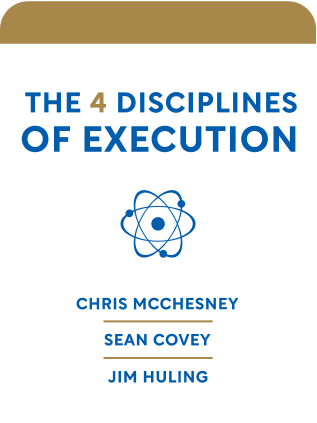

This article is an excerpt from the Shortform book guide to "The 4 Disciplines of Execution" by Chris McChesney, Sean Covey, and Jim Huling. Shortform has the world's best summaries and analyses of books you should be reading.
Like this article? Sign up for a free trial here .
Do you hold accountability meetings with your employees? How often do you meet, and what do you discuss?
In The 4 Disciplines of Execution, Chris McChesney, Jim Huling, and Sean Covey recommend holding a weekly accountability meeting—what they call a WIG (Wildly Important Goal) session. At each WIG session, team members will report what they’ve accomplished last week and what they plan to accomplish in the coming week.
Keep reading to learn about the 4DX accountability meeting.
Discipline 4: Accountability
In Discipline 4, the authors recommend holding a weekly accountability meeting. Because achieving the goal is now a game, people are accountable to their teammates as well as the boss. When people know others are depending on them, they’re more motivated and engaged, they try harder, and performance becomes a matter of personal pride. Regular goal sessions and mandatory attendance are key to this discipline—accountability requires consistency.
According to the authors, the goal session should take place at least once a week, last less than 30 minutes, and have a specific agenda: Review the scoreboard, report on last week’s commitments (and celebrate them), and come up with new commitments.
McChesney, Huling, and Covey say that goal session commitments must influence your current effort measurements (deluge tasks—the endless day-to-day business of running the company—do not belong in these meetings). Commitments must be focused, specific, impactful, and take no longer than a week to complete. The person who makes the commitment must be able to do most of the work themselves.
The authors add that leaders should make weekly commitments too. The most effective commitments for leaders are ones that help their team achieve their individual commitments and improve their execution. For example, if a team member requires a new piece of software, a leader could secure approval for the purchase.
| Accountability Requires Empowerment To hold employees accountable for their commitments, you must first empower them to carry out those commitments. The authors say that team members should choose their own goals, and that any individual commitment must be achievable by the person who made that commitment, but they never directly address employee empowerment. The Leadership Challenge explains how to empower employees, noting that empowerment directly leads to accountability. In brief, it works like this: Give employees the authority to make decisions and carry them out—remove as many managerial controls and approval processes as possible. Hold employees responsible for the decisions they make and the actions they undertake, both the good and the bad. Employees will naturally develop feelings of accountability. Because they’re acting on their own authority and reaping the benefits (or penalties) of their decisions, they’ll develop a sense of ownership for their work: It truly feels like their work, rather than something they’re doing for their boss or for the company. The Leadership Challenge also notes that empowered, accountable employees will be much more engaged with their work (remember Discipline 3)—because they feel responsible for their own projects, they’ll naturally go beyond their specifically assigned roles and tasks in order to achieve the best results possible. |

———End of Preview———
Like what you just read? Read the rest of the world's best book summary and analysis of Chris McChesney, Sean Covey, and Jim Huling's "The 4 Disciplines of Execution" at Shortform .
Here's what you'll find in our full The 4 Disciplines of Execution summary :
- The 4 disciplines that can make any strategy a successful reality
- Why a great plan falls apart when you don't think adequately about execution
- The 6 steps you need to scale the 4DX model across an entire organization






